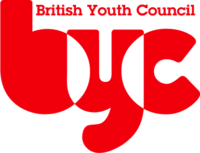Mental health training for teachers ‘a welcome change’
The Government have announced a new pledge to ensure every secondary school in the country will be offering Mental Health First Aid training by 2020. The British Youth Council welcome the Government’s announcement, which follows the Youth Select Committee’s recommendation for mandatory training for teachers on young people’s mental health. The British Youth Council’s Youth
- Published in News, Press, Youth Select Committee
Youth Select Committee to question the experts on ‘Body Image’
Bloggers, social media companies and academics are among those giving evidence to the Youth Select Committee on 7 and 14 July. The Committee is conducting an inquiry into Body Image and the impact it has on the well-being of children and young people. This topical issue was chosen by the Youth Select Committee, after almost
- Published in News, Youth Select Committee
Youth Select Committee calls for evidence on body image
The British Youth Council’s Youth Select Committee today (Friday 19th May 2017) announces a new inquiry into body image. The Committee is calling for evidence from a wide range of witnesses, including organisations and interested parties, as well as young people who have been affected by body image issues. The Youth Select Committee, now in
- Published in News, Youth Select Committee
There is ‘much to do’ to tackle racism and religious discrimination, Government response concludes.
The Government has today (Tuesday 7th February 2017) released its official response to the British Youth Council’s Youth Select Committee Report – ‘Young People and the Issues of Racism and Religious Discrimination’. In an unprecedented move, the joint response has been issued by three departments including the Department for Education, Home Office and Department for
- Published in News, Youth Select Committee
Welcoming Theresa May’s announcement on young people’s mental health
As Chair of the Youth Select Committee on Young People’s Mental Health, I warmly welcomed Theresa May’s pledge to overhaul mental health and to give parity of esteem for children and young people’s mental health with their physical health. The Youth Select Committee is a British Youth Council initiative, supported by the House of Commons
- Published in Blogs, Youth Select Committee
“Racist taunting dismissed as banter in UK schools” says Youth Select Committee
The British Youth Council’s Youth Select Committee will launch its report on ‘racism and religious discrimination’ on Wednesday 16th November 2016. The report, launched as part of UK Parliament Week, concludes that people’s attitudes towards racism and religious discrimination have become normalised and there is ambiguity surrounding what constitutes such behaviour. It stresses that the
- Published in News, Youth Select Committee
Racism and religious discrimination to be examined by Youth Select Committee
Following its call for written evidence in May, the Youth Select Committee is holding oral evidence sessions with a range of witnesses as part of its inquiry into racism and religious discrimination. The first oral evidence session will take place in the Grimond Room at Portcullis House on Friday 8th July 2016. The inquiry comes
- Published in News, Youth Select Committee
Youth Select Committee calls for evidence on racism and religious discrimination
The British Youth Council’s Youth Select Committee today announces a call for evidence on racism and religious discrimination. The Committee will explore issues around awareness, prevention, education and services for young people (under 25) and is calling for evidence from a wide range of witnesses including individuals and organisations, service providers, researchers and campaigners. Evidence
- Published in News, Youth Select Committee
Youth Select Committee to focus on racism and religious discrimination
The British Youth Council have announced today (Tuesday 22nd March) that racism and religious discrimination will be the topic of focus for the 2016 Youth Select Committee’s inquiry. Racism and religious discrimination was chosen as the UK Youth Parliament’s 2016 priority campaign following the Make Your Mark campaign, which took place in late 2015, where
- Published in News, Youth Select Committee
Mental health a “top priority” Government tells British Youth Council
The Government has today (Thursday 25th February 2016) released its Official Response to the British Youth Council’s Youth Select Committee Report – ‘Young People’s Mental Health’. The joint response from the Department for Education and Department of Health declares mental health and well-being as a ‘top priority in both departments’. It goes on to state
- Published in News, Youth Select Committee











